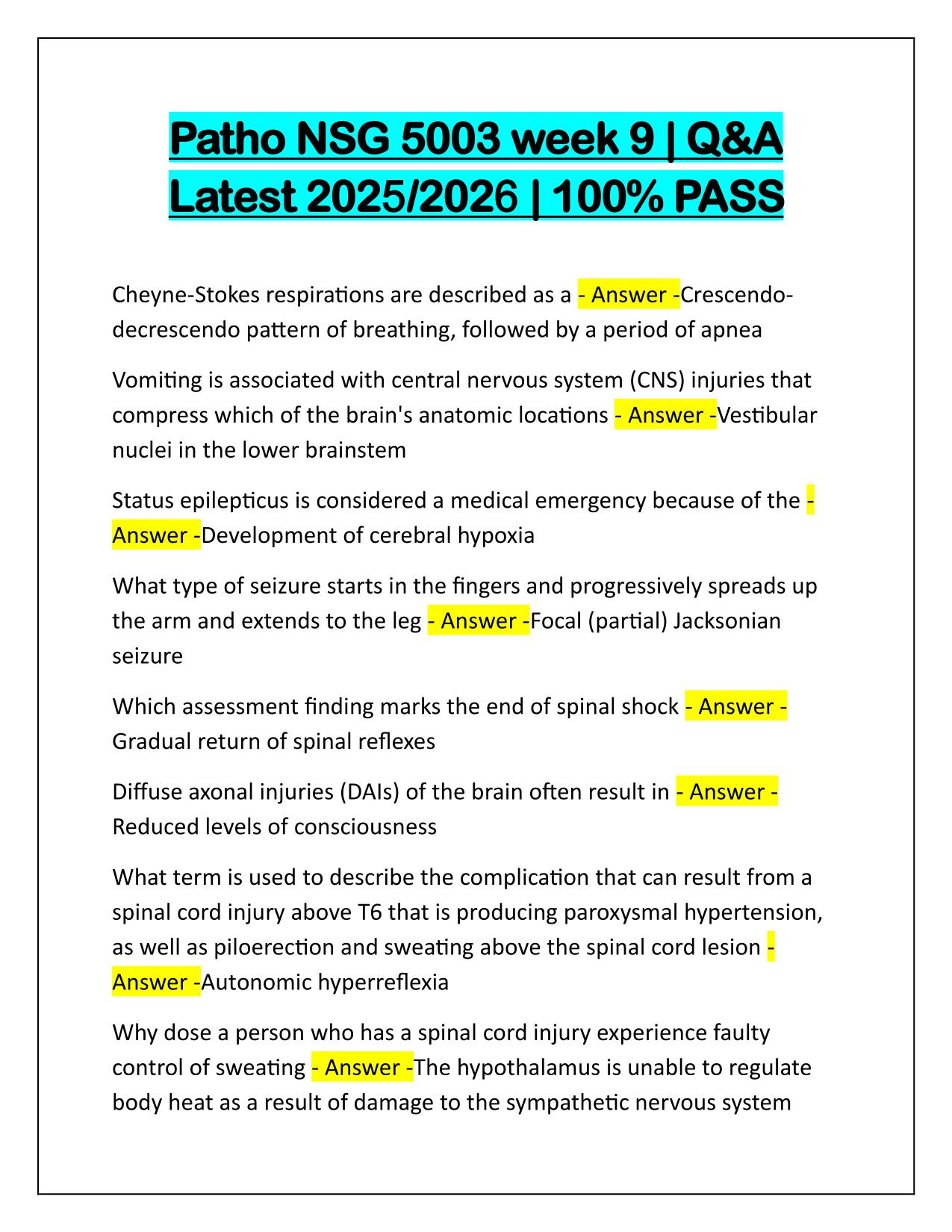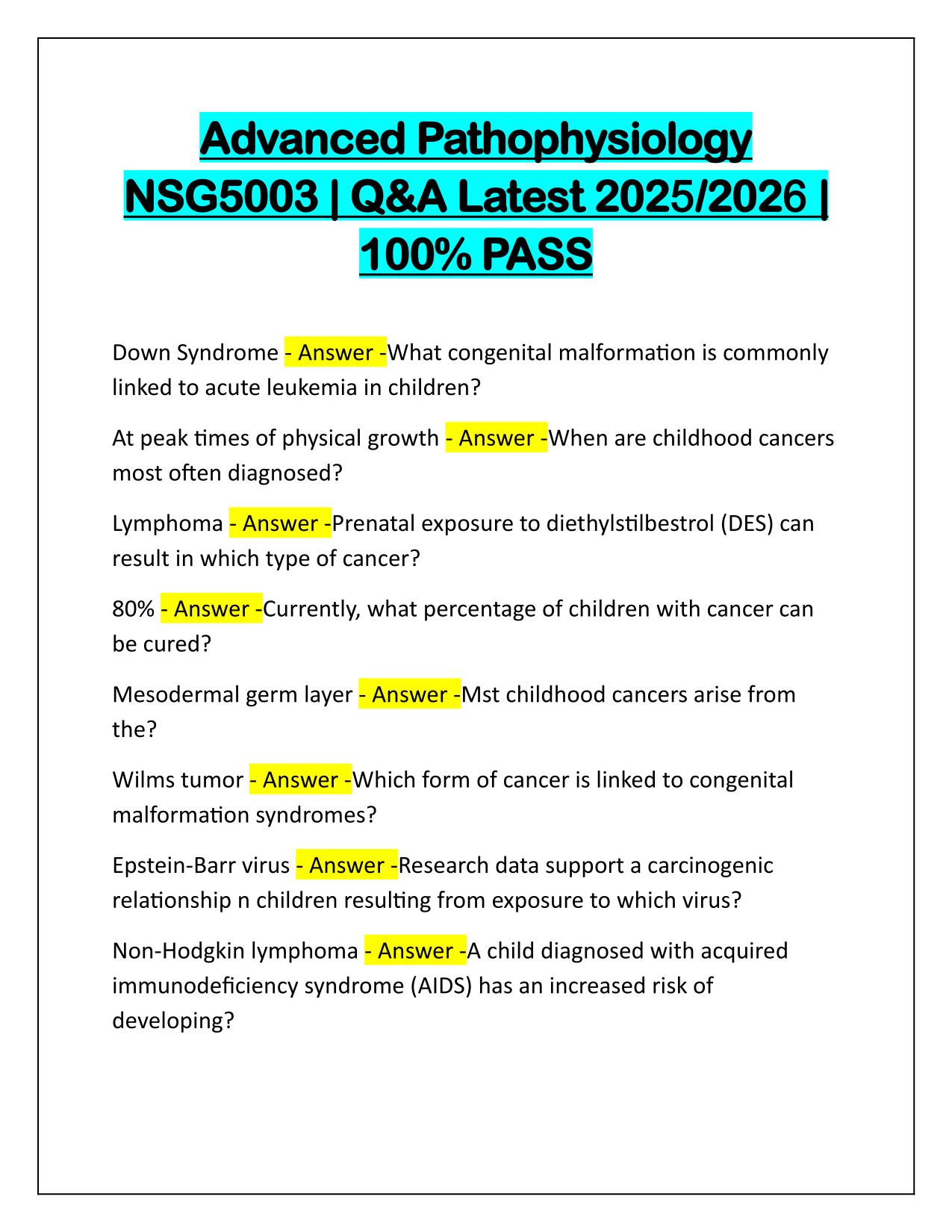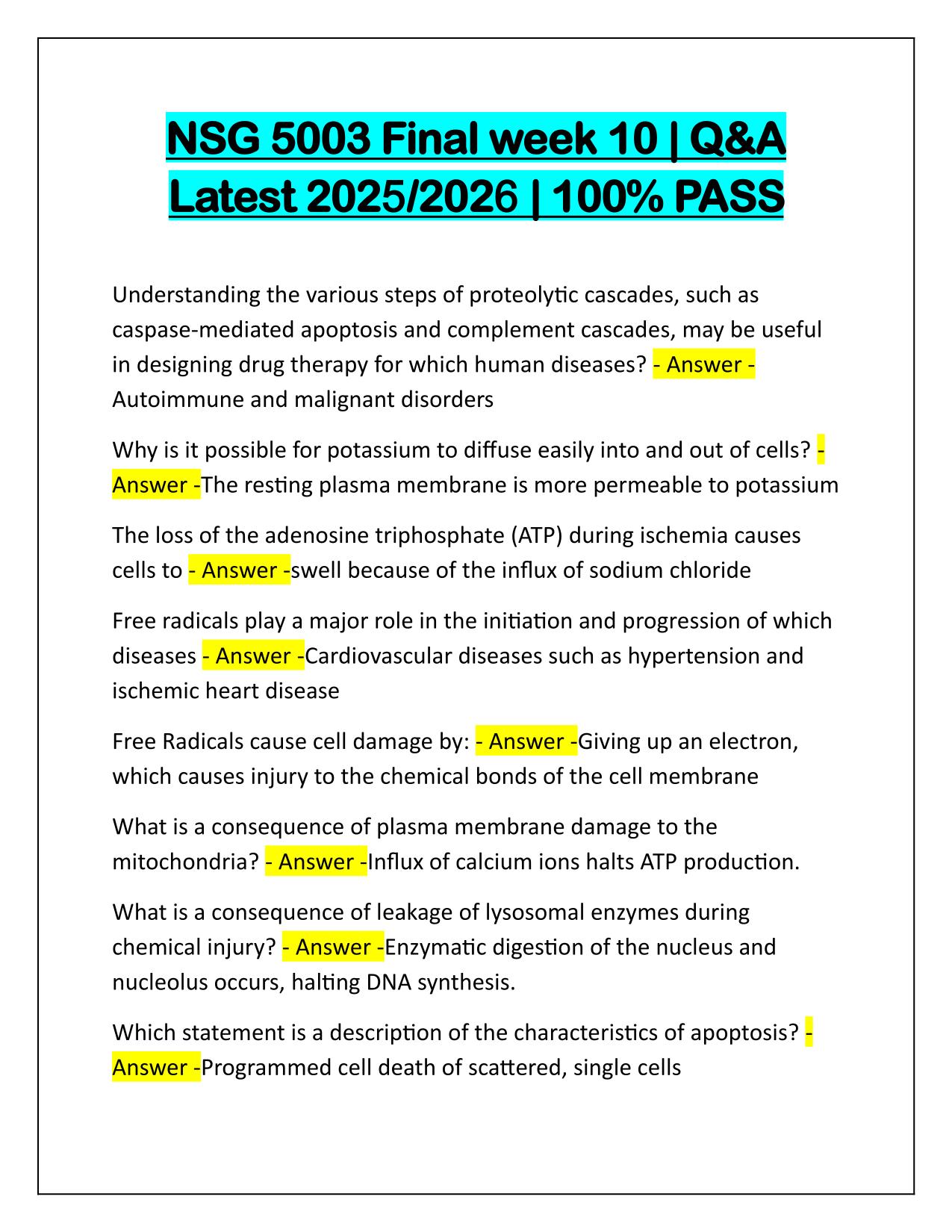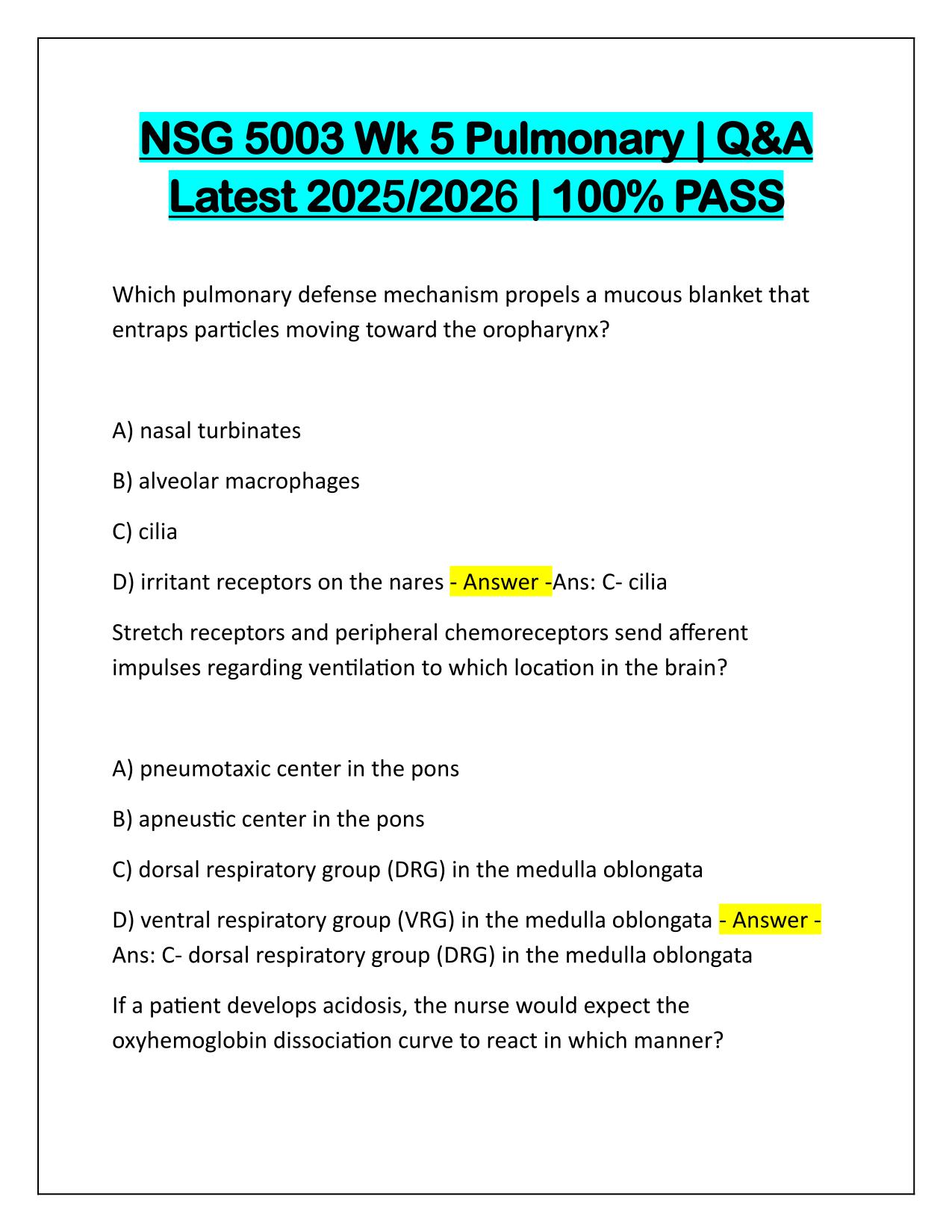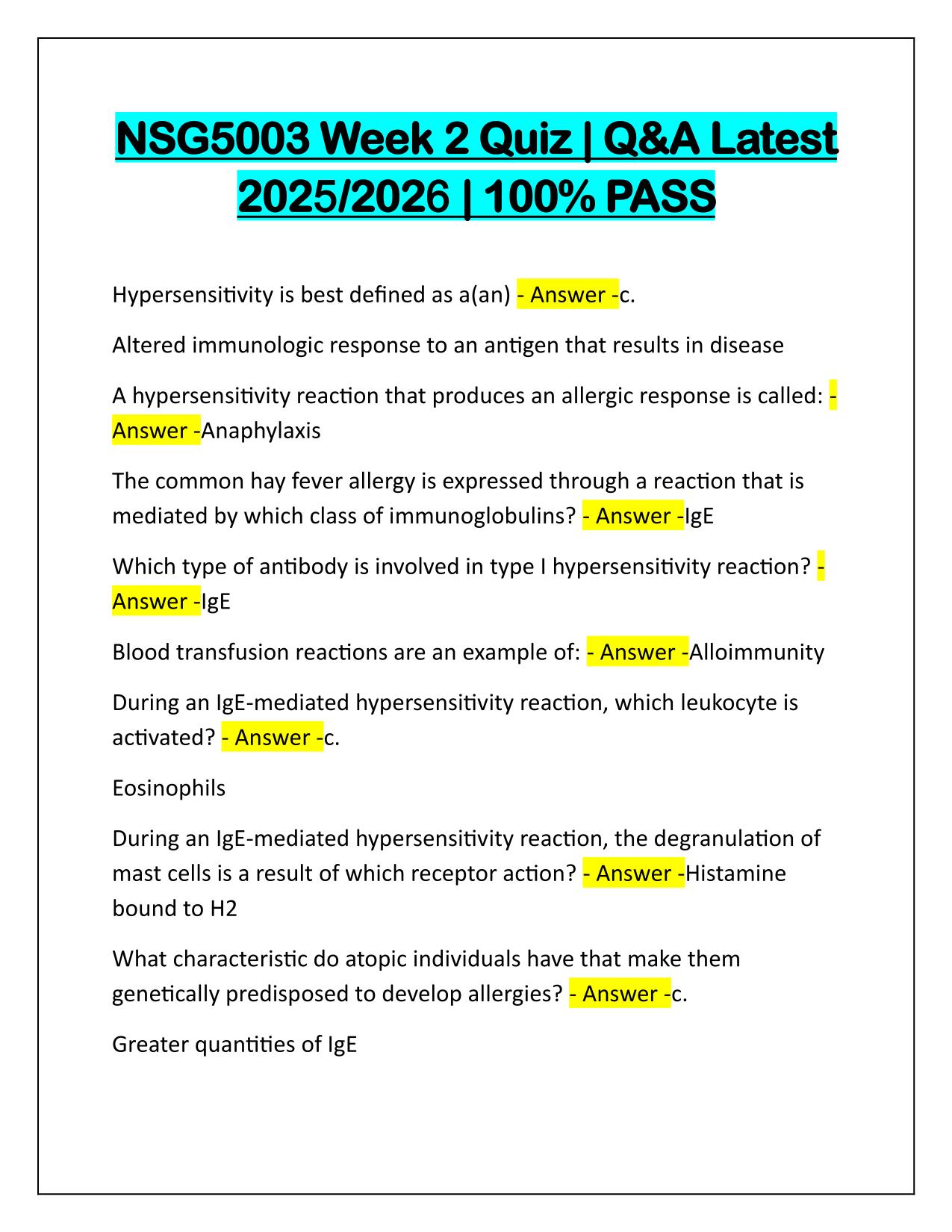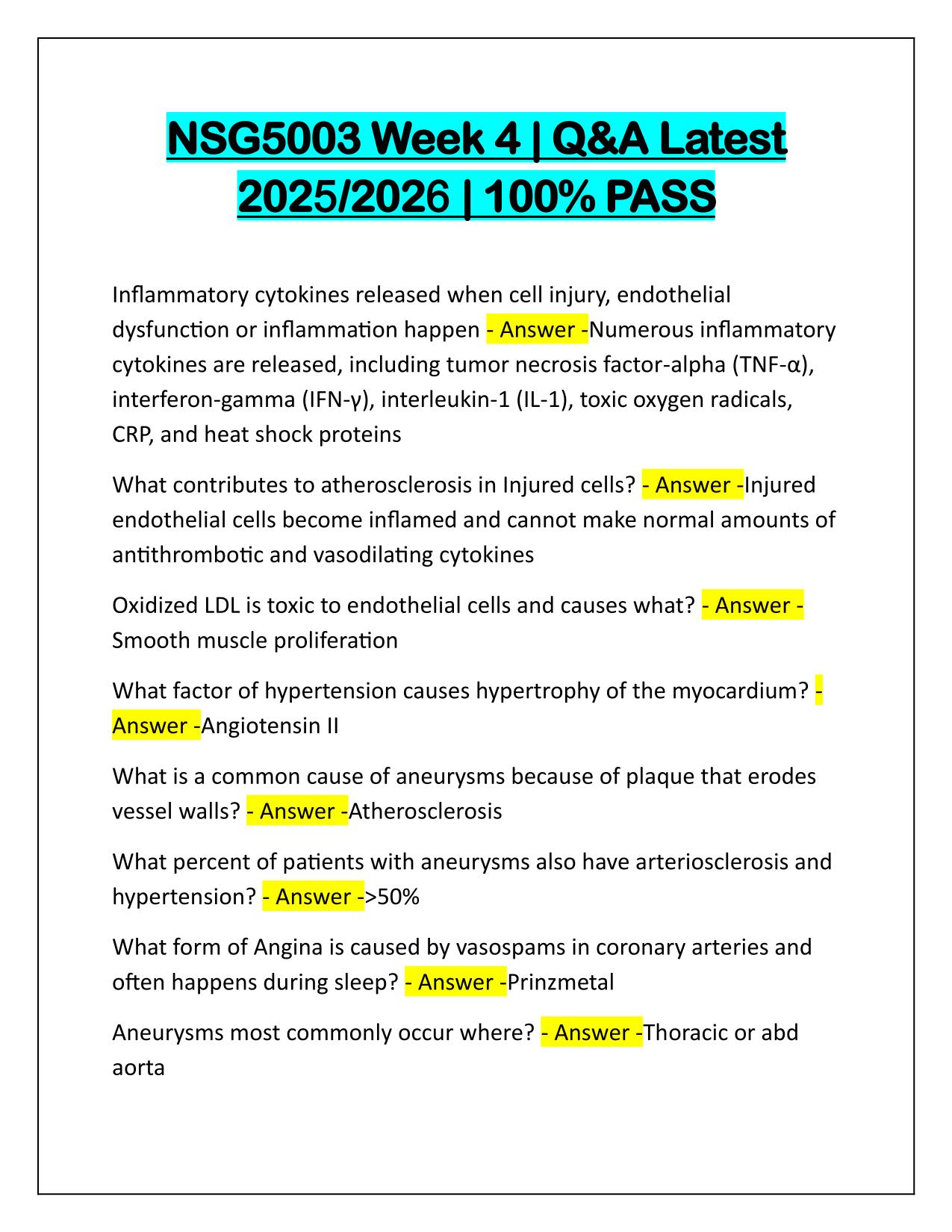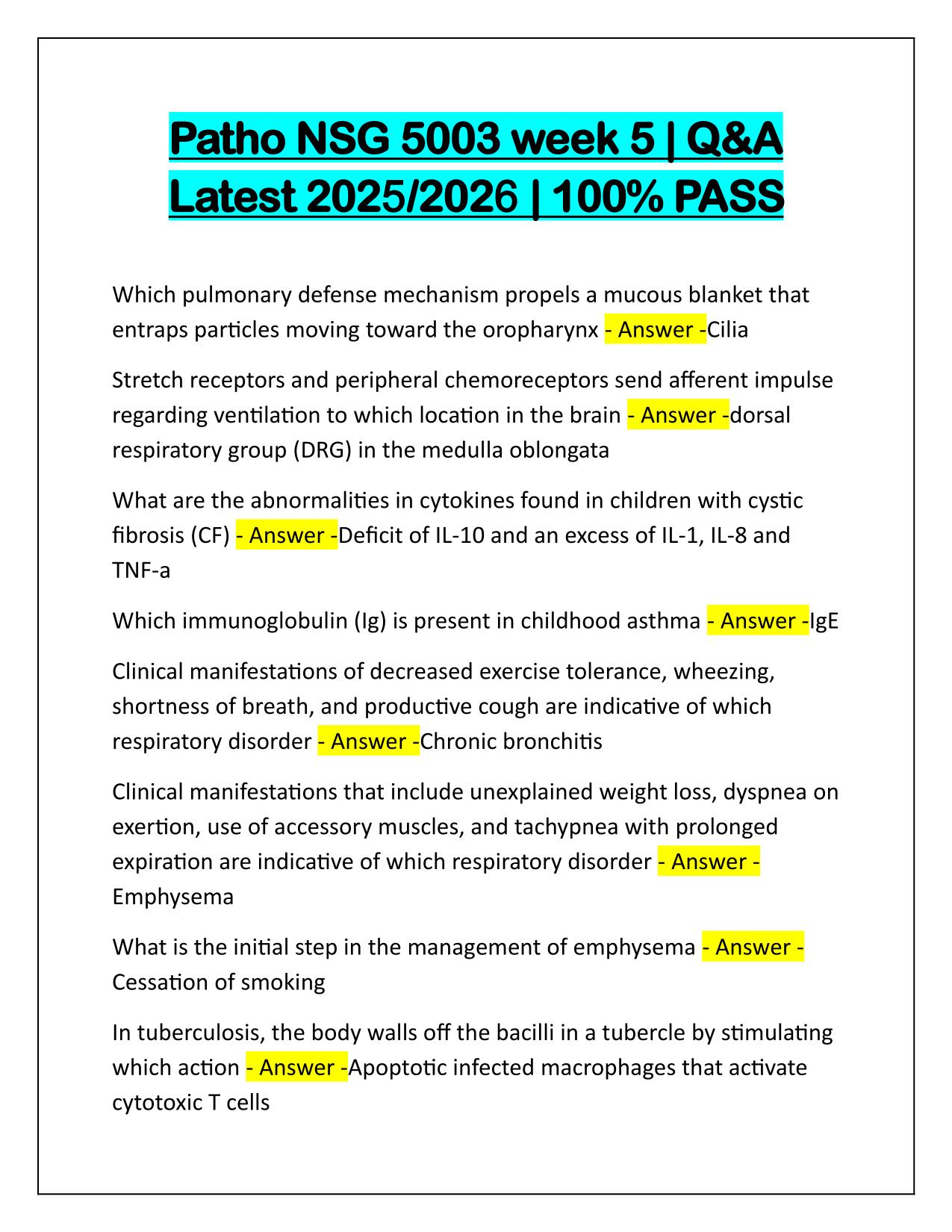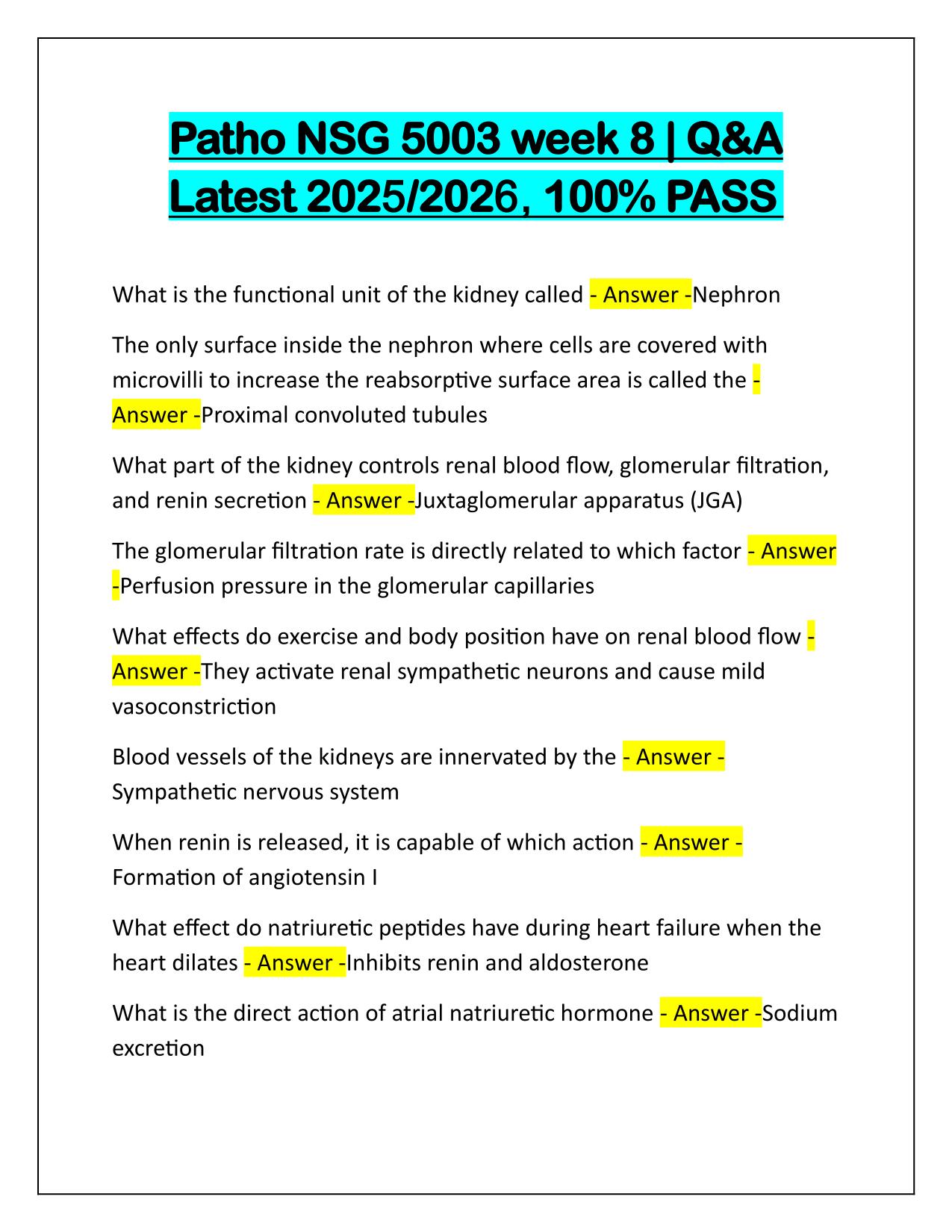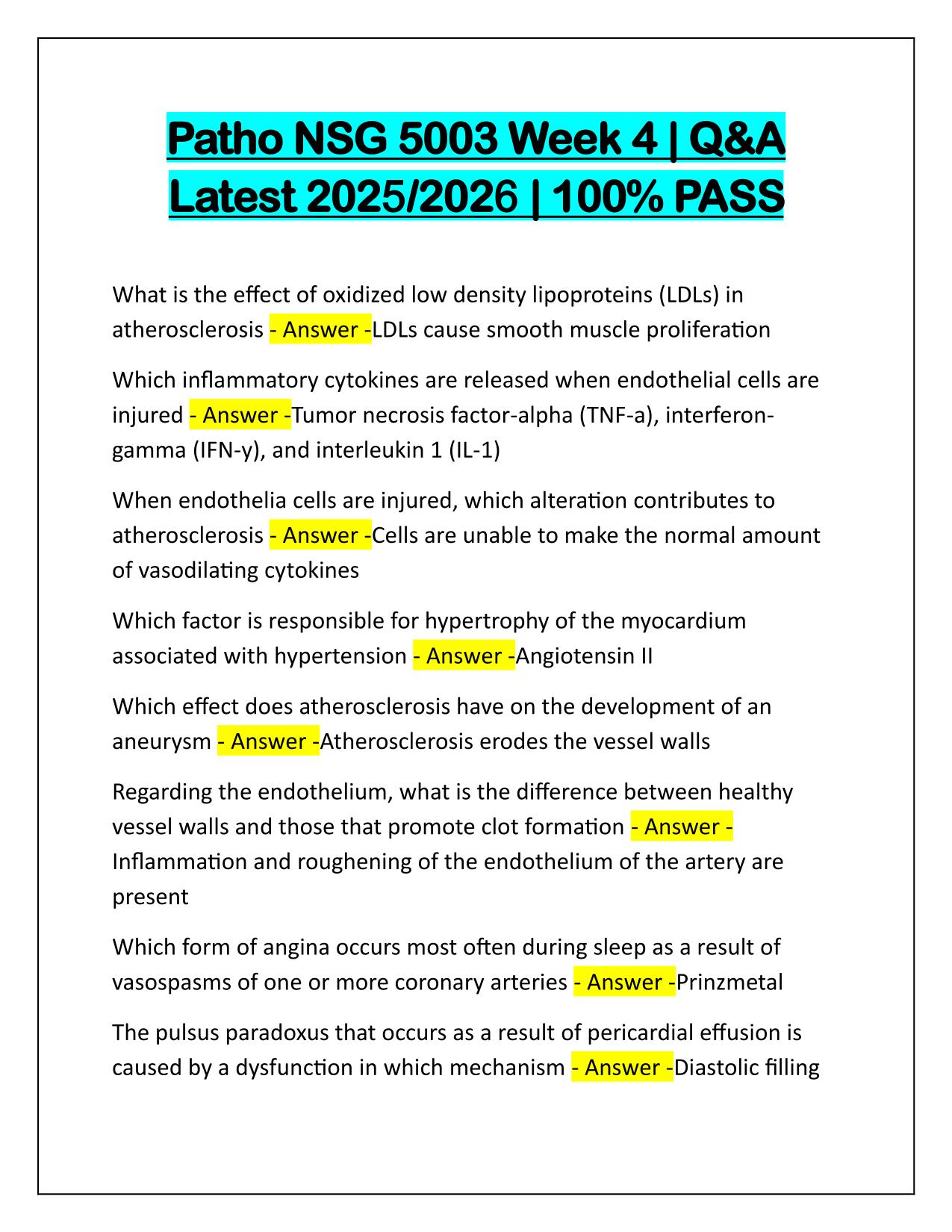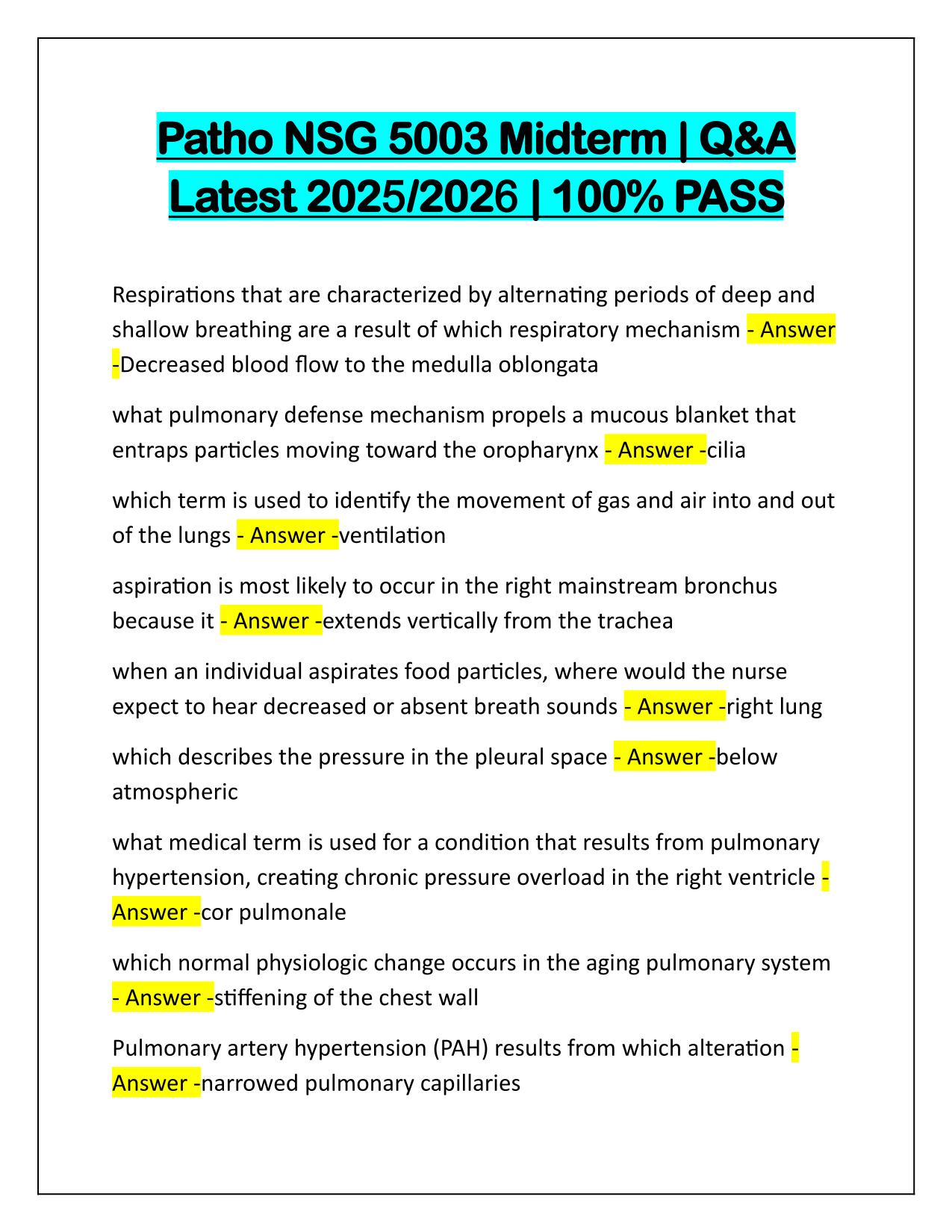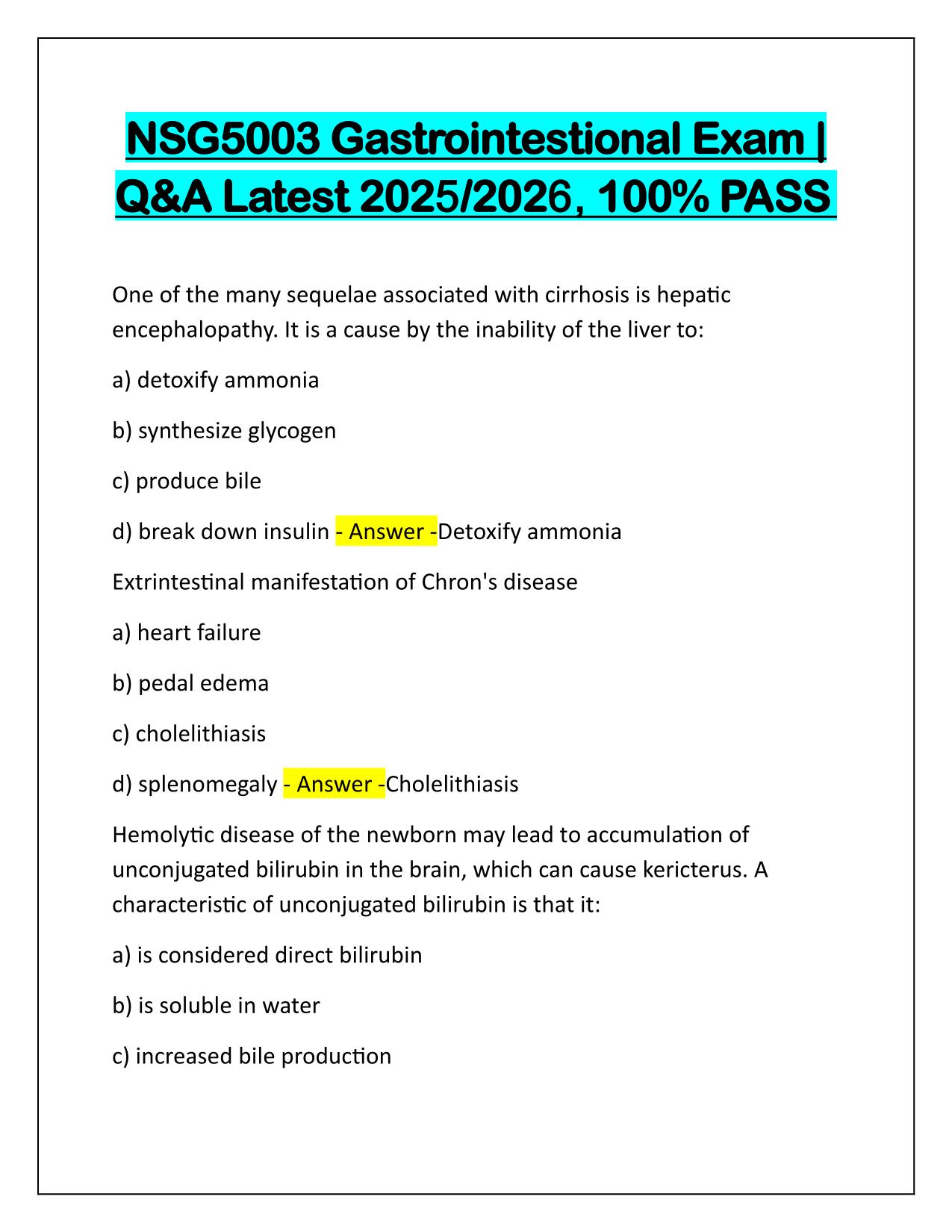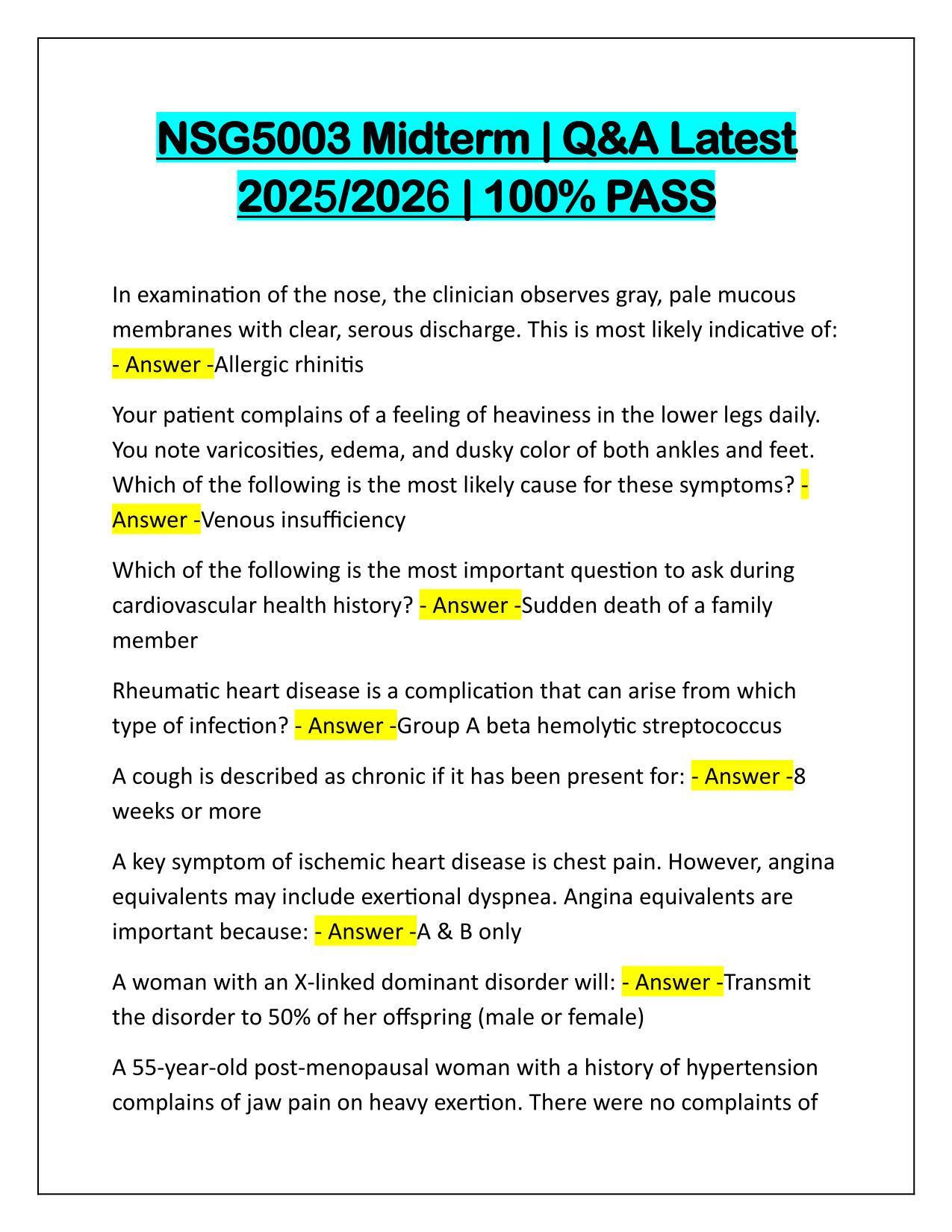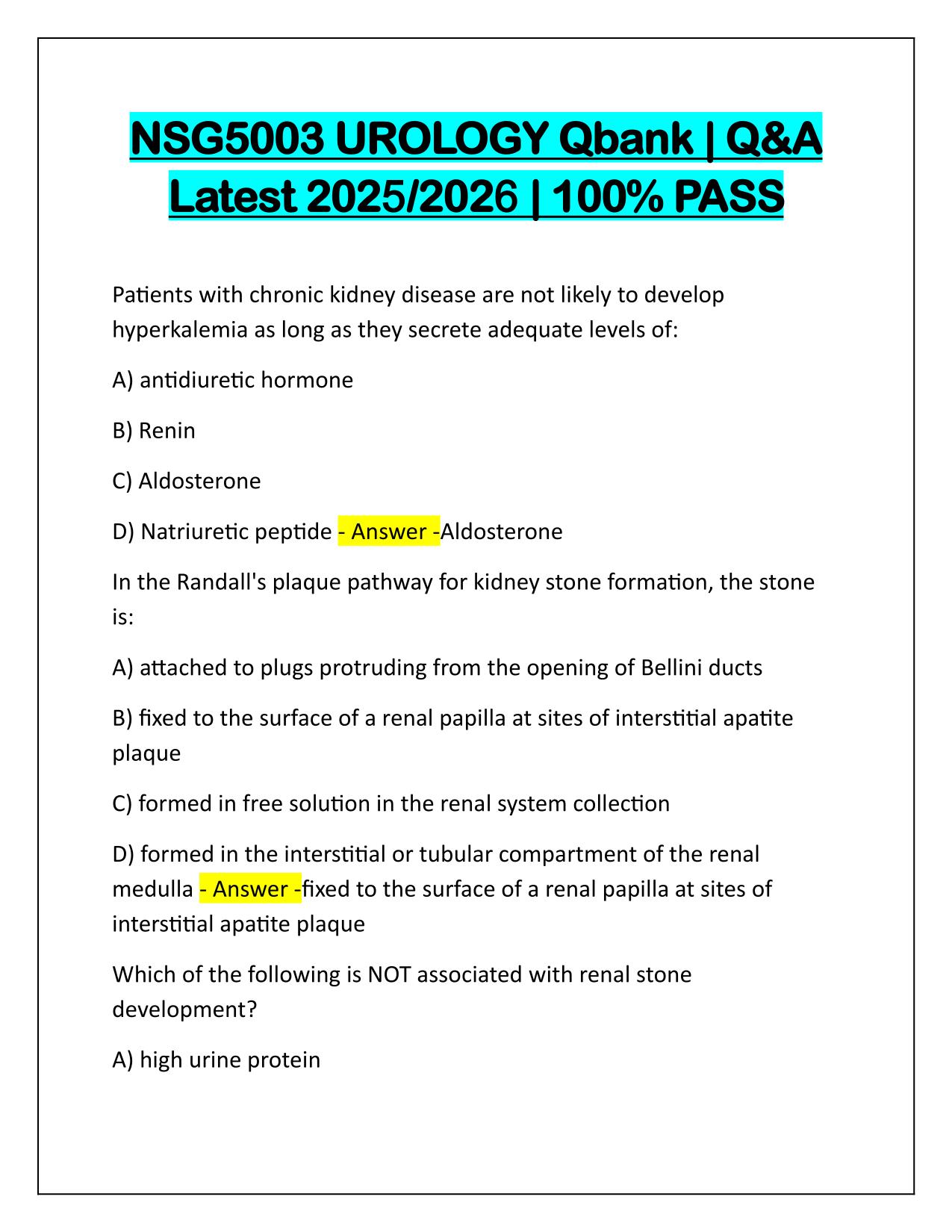Patho NSG 5003 week 9 Q&A Latest Update
Course:
NSG 5003
Institution:
NSG 5003
Patho NSG 5003 week 9 Q&A Latest Update
After purchase, you get:
✅ Instant PDF Download
✅ Verified answer explanations
✅ Refund if not Satisfied
✅ Prepared for 2025/2026 test cycle
Document Information
| Uploaded on: | May 4, 2025 |
| Last updated: | May 12, 2025 |
| Number of pages: | 3 |
| Written in: | 2025/2026 |
| Type: | Exam (elaborations) |
| Contains: | Questions & Answers |
| Tags: | Patho NSG 5003 week 9 Q&A Latest Update |
Seller Information

AdelineJean
User Reviews (0)
Exam (Elaborations)
$6.00
Bundle Deal! Get all 13 docs for just $23.99
Add to Cart
100% satisfaction guarantee
Refund Upon dissatisfaction
Immediately available after purchase
Available in Both online and PDF
$6.00
| 0 sold
Discover More resources
Available in a Bundle
Content Preview
Patho NSG 5003 week 9 | Q&A Latest 2025/2026 | 100% PASS Cheyne-Stokes respirations are described as a - Answer -Crescendodecrescendo pattern of breathing, followed by a period of apnea Vomiting is associated with central nervous system (CNS) injuries that compress which of the brain's anatomic locations - Answer -Vestibular nuclei in the lower brainstem Status epilepticus is considered a medical emergency because of the Answer -Development of cerebral hypoxia What type of seizure starts in the fingers and progressively spreads up the arm and extends to the leg - Answer -Focal (partial) Jacksonian seizure Which assessment finding marks the end of spinal shock - Answer Gradual return of spinal reflexes Diffuse axonal injuries (DAIs) of the brain often result in - Answer Reduced levels of consciousness What term is used to describe the complication that can result from a spinal cord injury above T6 that is producing paroxysmal hypertension, as well as piloerection and sweating above the spinal cord lesion Answer -Autonomic hyperreflexia Why dose a person who has a spinal cord injury experience faulty control of sweating - Answer -The hypothalamus is unable to regulate body heat as a result of damage to the sympathetic nervous system
